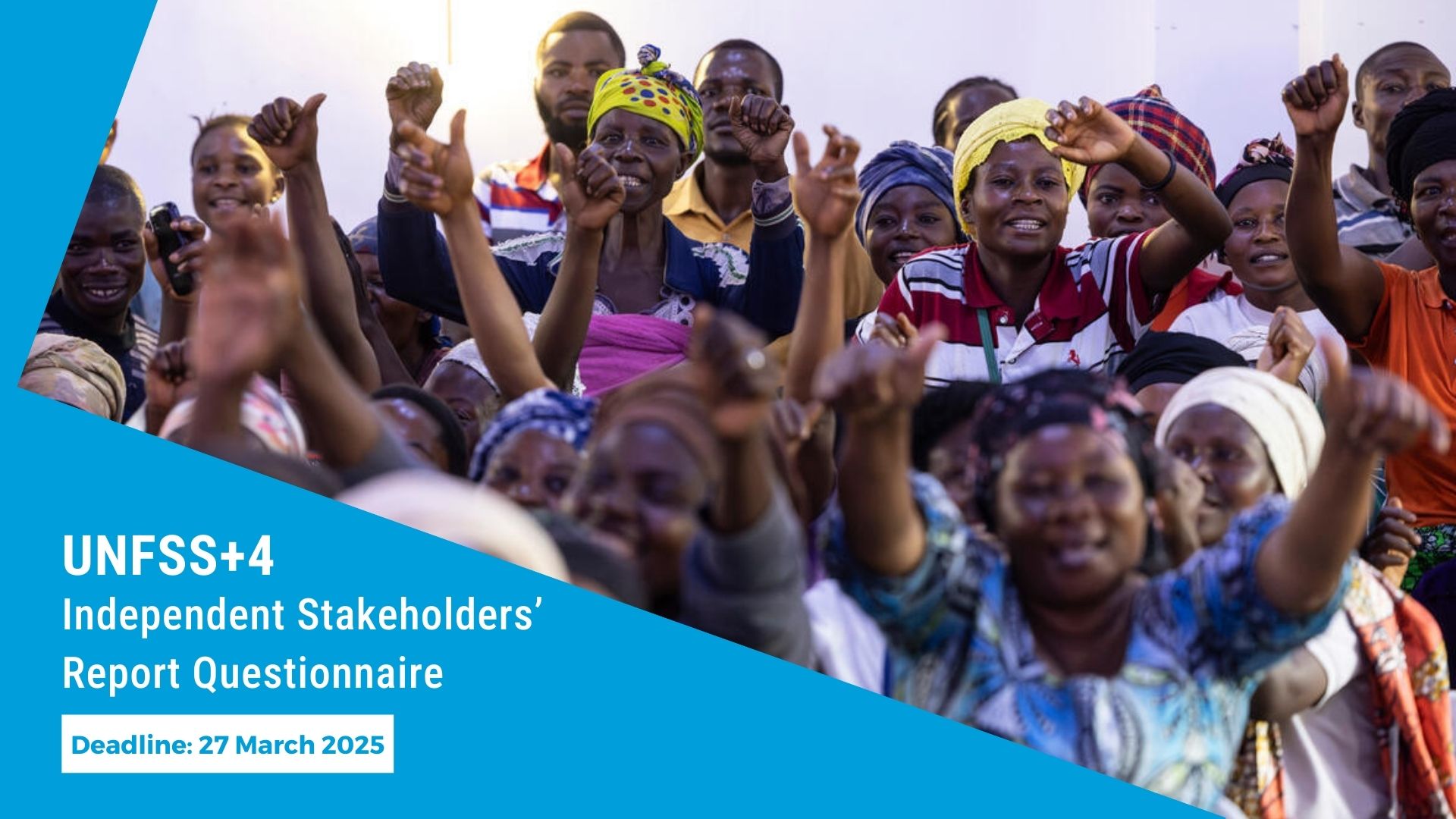OVERVIEW AND UPDATES
About UNFSS+4
The 2nd United Nations Food Systems Summit Stocktake (UNFSS+4) will take place July 27–29, 2025, in Addis Ababa, Ethiopia, co-hosted by Ethiopia and Italy. Building on the momentum of the 2021 UN Food Systems Summit (UNFSS) and the first Stocktake in 2023 (UNFSS+2), this event will reflect on global progress in food systems transformation, strengthen accountability, and unlock investments to accelerate action towards the 2030 Sustainable Development Goals (SDGs).
With just five years remaining until 2030, UNFSS+4 will serve as a critical moment to reflect on national efforts, explore solutions, and mobilize stakeholders toward sustainable, resilient, and inclusive food systems.


KEY DATES AND STRUCTURE
- July 27 – Action day & field visits
- July 28-29 – UNFSS+4 official sessions
The high-level opening will include participation from the UN Secretary-General, heads of state and government, and other global leaders.
A pre-summit session will also take place, where civil society – including youth, Indigenous groups, smallholder farmers, and women’s organizations – will lead discussions on the future of food systems transformation.
Why UNFSS+4 Matters
The 2021 UN Food Systems Summit (UNFSS) positioned food systems as a key lever for the sustainable development agenda. However, geopolitical challenges, ongoing conflicts, and the climate crisis have hindered progress. UNFSS+4 aims to address these challenges by reinforcing commitments made at previous summits, aligning global priorities, and accelerating practical solutions.

Building on UNFSS+2: The Call to Action
At UNFSS+2 in 2023, the UN Secretary-General issued a Call to Action for accelerated food systems transformation, urging governments and stakeholders to:
- Integrate food systems strategies into all national policies for sustainable development.
- Strengthen governance frameworks to engage all sectors and stakeholders.
- Invest in research, data, innovation and technology capacities, including stronger connections to science.
- Promote inclusive participation of women, youth, and Indigenous communities.
- Expand private sector engagement through sustainable business practices.
- Improve access to financing and concessional funding for food systems transformation.
Objectives of UNFSS+4
Reflecting on progress
Reflecting on achievements and identifying lessons learned, while analyzing the factors that have enabled success in various contexts. This will provide a foundation for understanding gaps and scaling transformative solutions.
Strengthening accountability
Engaging state and non-state actors in mutual accountability mechanisms to assess commitments, track progress, and identify missing elements, fostering an inclusive environment where all stakeholders can contribute meaningfully to food systems transformation.
Unlocking investments
Exploring opportunities for financing innovations and scaling solutions, with a focus on creating enabling environments, leveraging public-private partnerships, and mobilizing climate and development finance to support transformative actions at scale.
Stay Updated
Regular updates, event briefings, and engagement opportunities will be shared leading up to UNFSS+4. Subscribe to our mailing list to informed.

Launch of the UNFSS+4 Independent Stakeholders' Report Questionnaire

©FAO / Alessandra Benedetti
The UN Food Systems Coordination Hub is pleased to announce the launch of a comprehensive questionnaire to gather critical inputs for the Independent Stakeholders’ Report to the UN Food Systems Summit +4 Stocktake (UNFSS+4).
Taking place in July 2025, the UNFSS+4 will serve as a critical milestone to assess concrete advancements toward more sustainable food systems. The UNFSS+4 will focus on reflecting on progress in food systems transformation at the national and global levels, strengthening accountability and unlocking investment opportunities for scaling impactful solutions for transformative action.
About the Independent Stakeholders' Report
The Independent Stakeholders’ Report will complement the official UN Secretary-General's Stocktake Report, by highlighting the perspectives of non-state actors (NSAs), including producers, consumer organizations, private sector representatives, youth, women, Indigenous Peoples, education and research institutions, workers and trade unions and other food systems stakeholders.
Framed and drafted independently by self-organizing multi-stakeholder constituencies, the report will assess progress, challenges and investment opportunities in food systems transformation. It will also reflect on NSA accountability, by setting out key objectives for different actors of the food systems community against which they will be invited to report at regular intervals.
Your input matters
The information gathered through this questionnaire will:
- Directly contribute to the preparation of the Independent Stakeholders' Report
- Serve as evidence for shaping the agenda and outcomes of UNFSS+4
- Provide constructive critical reflections and recommendations to further raise the ambition of UNFSS follow-up efforts by 2030.
This questionnaire offers the opportunity for stakeholders to share their efforts and experiences in food systems transformation initiatives at local/sub-national, national, regional, and global levels—both within national pathways implementation and in broader initiatives beyond them. Participation ensures that the diverse voices of all food systems actors are included in UNFSS+4 preparations and outcomes.
Submit your response by 27 March 2025
The UN Food Systems Coordination Hub encourages all food systems stakeholders to contribute to this critical assessment of global food systems transformation.
We kindly request that each organization submits only one consolidated response to ensure comprehensive representation of your organizational perspective.
Complete the questionnaire now: English | Français | Español
For questions regarding this questionnaire, please contact the UN Food Systems Coordination Hub at [email protected]
